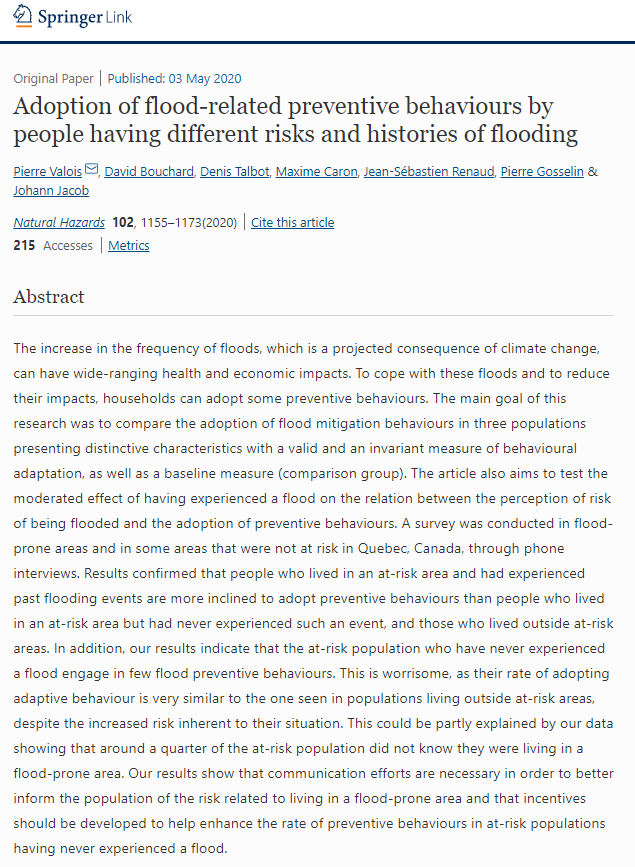The increase in the frequency of floods, which is a projected consequence of climate change, can have wide-ranging health and economic impacts. To cope with these floods and to reduce their impacts, households can adopt some preventive behaviours.
The main goal of this research was to compare the adoption of flood mitigation behaviours in three populations presenting distinctive characteristics with a valid and an invariant measure of behavioural adaptation, as well as a baseline measure (comparison group). The article also aims to test the moderated effect of having experienced a flood on the relation between the perception of risk of being flooded and the adoption of preventive behaviours. A survey was conducted in flood-prone areas and in some areas that were not at risk in Quebec, Canada, through phone interviews.
Results confirmed that people who lived in an at-risk area and had experienced past flooding events are more inclined to adopt preventive behaviours than people who lived in an at-risk area but had never experienced such an event, and those who lived outside at-risk areas. In addition, our results indicate that the at-risk population who have never experienced a flood engage in few flood preventive behaviours.
